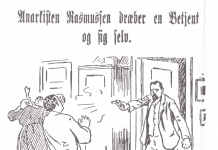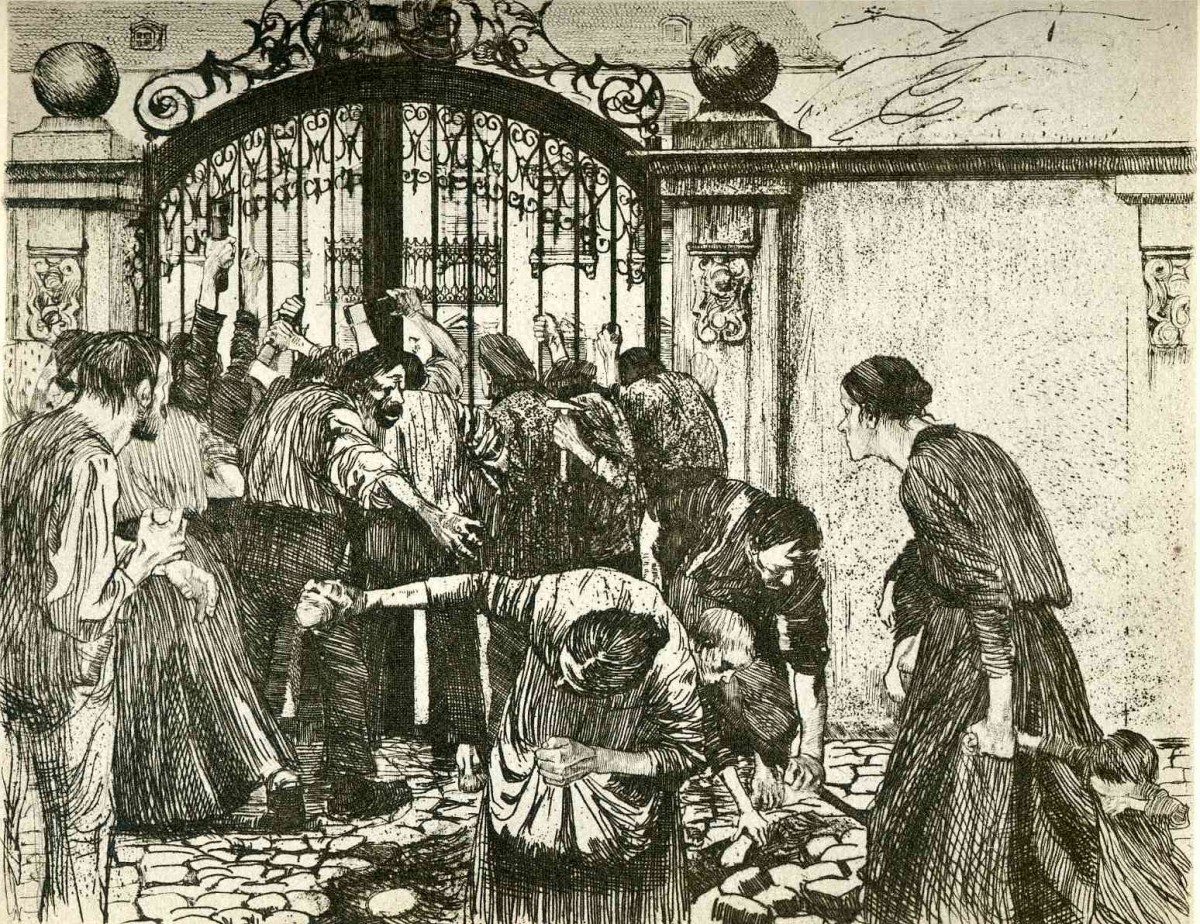
Socialistisk Biblioteks Tidslinje med links til begivenheder og personer i 1867.
Se også Index over personer, organisationer/partier og værker (som bøger, malerier, mm.), steder, begivenheder, mv., der er omtalt på hele Tidslinjen, titler og indhold på emnelisterne osv.
8. juli 1867
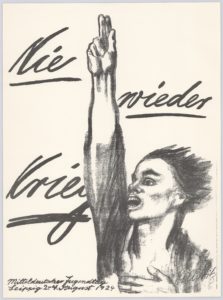
Grafikeren og billedhuggeren Käthe Kollwitz fødes i Kalingrad, dengang Königsberg, Østpreussen. (Dør 22. april 1945 i Moritzburg ved Dresden).
Se:
- Kollwitz, Käthe (Leksikon.org)
- Käthe Kollwitz (Wikipedia.de)
- Käthe Kollwitz (Spartacus Educational)
- Käthe Kollwitz Museum, Berlin (site)
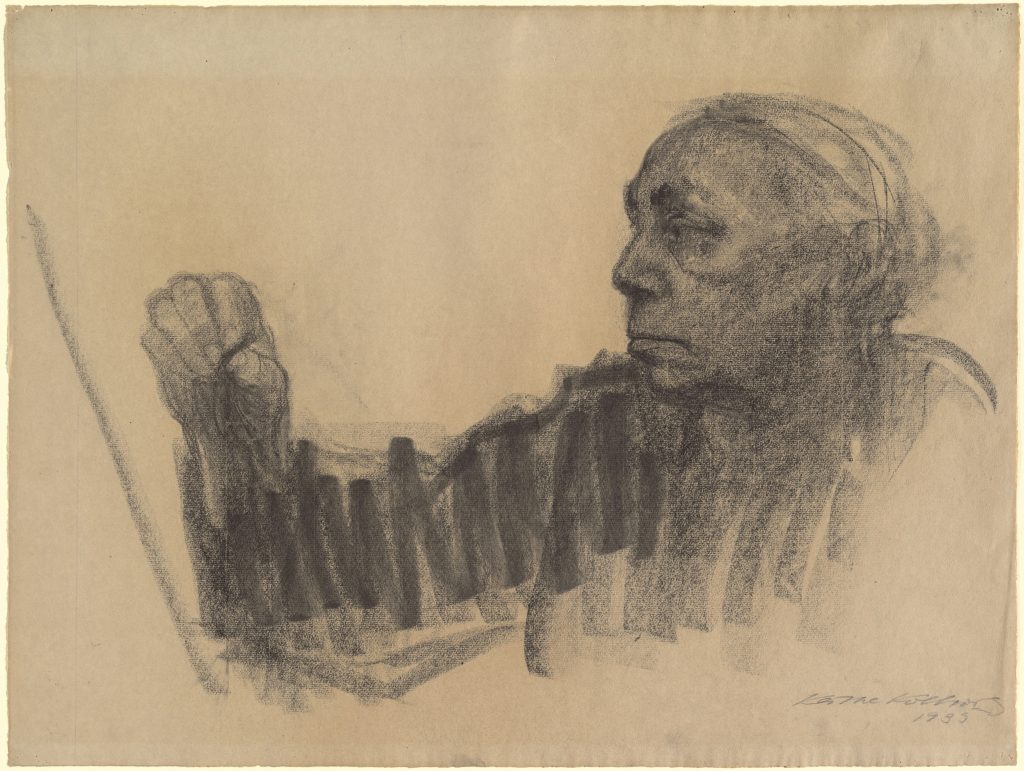
17. juli 1867
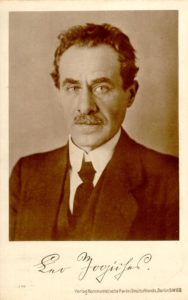
Den polsk-tyske revolutionære Leo Jogiches fødes i Vilnius, nuværende Lithauen (myrdes i Berlin i politiets varetægt 10. marts 1919). Kortvarigt formand for Tysklands Kommunistiske Parti, KPD, i marts 1919, og mangeårig partner og medarbejder i det illegale polske parti til den revolutionære socialist Rosa Luxemburg.
Biografi:
- Leo Jogiches (Wikipedia.org). Engelsk artikel med link til tysk og kort danske artikel.
- Leo Jogiches (Spartacus Educational)
- Leo Jogiches. Von Karl Radek (Rosa Luxemburg, Karl Liebknecht, Leo Jogiches. Hamburg, 1921. Teil III; online at Marxists Internet Archive, Deutsch).
Links:
A Letter from Prison. By Leo Jogiches (New Interventions, Vol.9, No.2, 1999; online at Marxists Internet Archive). The letter is dated 7 September 1918.
Se også på Socialistisk Bibliotek:
- Personlisten: Rosa Luxemburg (1871-1919)
- Emnelisten: Den Tyske Revolution 1918-23
8. september 1867
Den socialistiske skribent, teoretiker og handelsmand Alexander Helphand Parvus fødes som Israel Lazarevitj Gelfand 8. september 1867 i Berasino, Hviderusland. (Dør 12. december 1924 i Berlin). Boede i København 1915-1917.
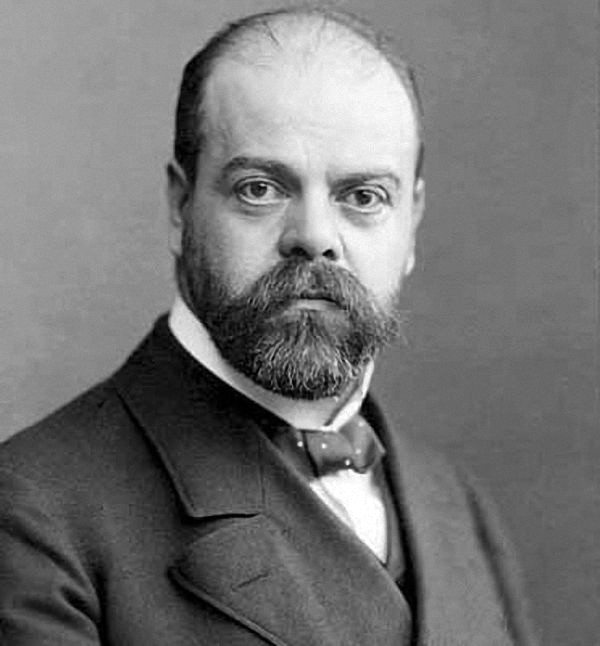
Links:
- Alexander Helphand (Denstoredanske.dk). Kort biografisk.
- Alexander Parvus (Wikitrans)
- Alexander Parvus (Wikipedia.org)
- Alexander Parvus (Spartacus Educational)
Historie: En bank bli’r til … Af Claus Hagen Petersen (Arbejdernes Landsbank, 19. juni 1994). “I 1915 slog Parvus sig ned på Vodroffsvej på Frederiksberg …”. Scroll ned.
Arbejdernes Brændselsforretning – Arbejderkul (Arbejdermuseet). “En person der kommer til at spille en central rolle i spillet om det tyske kul, er den russiskfødte Dr. Phil. Alexander Israel Lasarevitj Helphand – der altid bliver kaldt Parvus.”
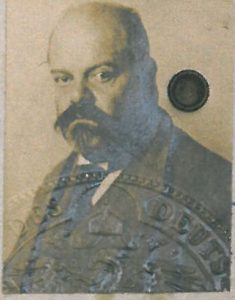
Arbejderkul og agenter (Danmark1914-18.dk). “… i 1916 lykkedes det arbejderbevægelsen at skaffe kul fra Tyskland, takket være den russiske exil-socialist, dr. Helphand, der havde bosat sig i København og fungerede som tysk agent.”
Alexander Helphand Parvus (Danmark1914-18.dk). “Den russiske, socialistiske millionær, der søgte at fremme den russiske revolution fra København for tyske penge.”
En hjælpende hånd. Af Dino Knudsen (Weekendavisen, nr.45, 10. november 2017; online på Danmark1914-18.dk). “En socialist bosat i København spillede en ganske betydningsfuld rolle i Den Russiske Revolution.”
Parvus’s ‘Fourth of August’. By Mike Macnair (Weekly Worker, Issue 1023, 14 August 2014). “Sections of the left also adopted a German-defencist position during 1914-18.”
Parvus: for German victory (Weekly Workers, Issue 1025, 11 September 2014). “New translations shed light on the thinking of socialists who ended up supporting ‘their’ side in WWI. Mike Macnair introduces a second Parvus article.”
World War I: The SPD left’s dirty secret (Weekly Worker, Issue 1016, 26 June 2014). “Ben Lewis discusses a largely forgotten and ignominious chapter in the history of the German workers’ movement.”
The origins of permanent revolution. By Paul Hampton (Workers’ Liberty, 29 September 2011). “Trotsky explicitly acknowledged the contribution made by Parvus to developing the permanent revolution perspective.” Scroll ned til “Parvus”.
Trotsky and Parvus: The inception of the theory of permanent revolution. Chapter 6 in Tony Cliff: Trotsky: Towards October 1879-1917 (Bookmarks, 1989, p.80-87). “Parvus had an enormous reputation as a Marxist writer and political thinker at the time.”
“Berstein’s overthrow of socialism: Parvus’ intervention”. Chapter 6 in H. Tudor and J.M. Tudor: Marxism and Social Democracy: The Revisionist Debate 1896-1898 (pdf) (Cambridge University Press, 1988, p.174-204; online at The Charnel-House/Internet Archive). Scroll ned.
‘Our Tasks’ (pdf). By Parvus. Chapter 16 in Richard B. Day and Daniel Gaido: Witnesses to Permanent Revolution: The Documentary Record (Haymarket Books, 2011, p.479-486; online at Cambridge Trotsky Reading Group). “This article appeared in the
first edition of the Menshevik newspaper Nachalo, edited by Parvus and Trotsky, on 13 November 1905.”
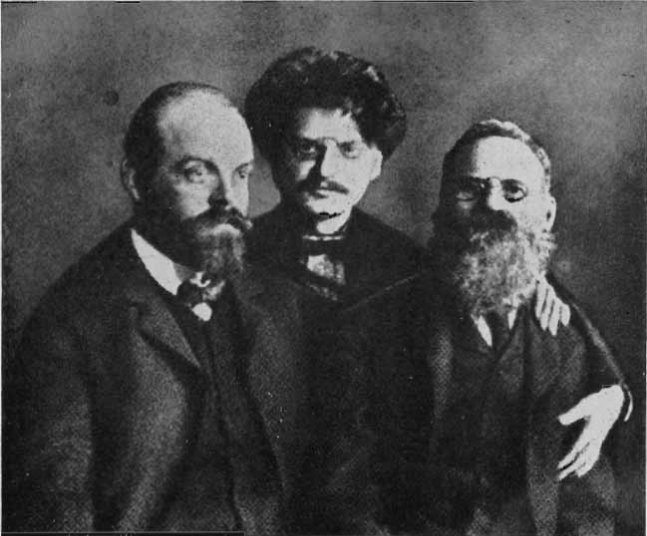
Litteratur:
- Pjecer, artikler mv. på dansk af Parvus (søgning på Bibliotek.dk, 2.1.2018)
- Parvus (pdf) (Københavns Trykkeri, 1918; online på Det Kongelige Bibliotek). Artikler fra Dagbladet “København”.
- Den socialdemokratiske partiledelse, Alexander Helphand og den II. Internationales fredsbestræbelser 1914-17. Bind 1-3. Af Hans Fluger (Speciale i Historie ved Københavns Universitet, 1974).
-
Dr. H.: Rejsende i revolution. Af Tørk Haxthausen (Gyldendal, 1986, 507 sider). Biografisk roman.
- The Merchant of Revolution: The Life of Alexander Israel Helphand (Parvus), 1867–1924. By Z.A.B. Zeman and W. B. Scharlau (Oxford University Press, 1965, 306 p.).
11. september 1867
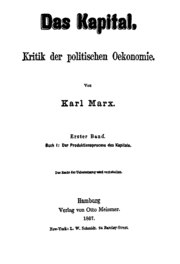
Links:
- Kapitalen. Af Gerd Callesen (Leksikon.org)
- Das Kapital (Wikipedia.org). Engelsk artikel, med link til længere artikler om alle 3 bind.
- Das Kapital (Wikipedia.de). Tysk artikel med bl.a. værkhistorie.
- Reading Marx’s Capital with David Harvey (Davidharvey.org). A close reading of the text of Karl Marx’s Capital, Vol. I.
- Video: David Harvey, Nancy Holmstrom, Ajay Singh Chaudhary on 150 Years of Marx’s Capital (Verso, Blog, 13 November 2017, 1:03 hour)
Kapitalen og venstrefløjen i 150 år. Af Bertel Nygaard (Arbejderen.dk, 24. marts 2023/Magasinet Arbejderen, nr.5, 2022). “I de 150 års danske brug af Marx’ hovedskrift ‘Kapitalen’ kan man se væsentlige træk af venstrefløjens lange bestræbelser på både at forstå og forandre verden. De to første bøger af ‘Kapitalen’ udkom på dansk allerede i 1888 og 1889 – som de første udgaver i verden, der blev udgivet af arbejderbevægelsen.”
‘Kapitalen’ er stadig en uomgængelig klassiker (Information.dk, 1. maj 2021). “På Arbejdernes Internationale Kampdag skitserer historiker Bertel Nygaard 150 års venstrefløjshistorie ved at se på de skiftende danske læsninger af kapitalismekritikkens hovedværk.”
Verdens vigtigste værk. Af Magnus Møller Ziegler (Arbejderen.dk, 14. september 2017). “Karl Marx’ hovedværk, Kapitalen, fylder i dag præcis 150 år.”
’Kapitalen’ er en hensynsløs kritik af alt bestående. Af Søren Mau (Information.dk, 9. september 2017). “Her er historien om et af de absolutte hovedværker i den vestlige idéhistorie.”
Kapitalen i den danske arbejderbevægelse (pdf). Af Gerd Callesen (Dkp.dk, Marxismekonferencen 2017, 12 s.). “Den første store indsats for med oversættelser at fremme forståelsen af marxismen blev dog først gjort i 1880’erne.”
Allerede i 1887 kom Kapitalen på dansk. Af Gerd Callesen (Arbejderen.dk, 23. december 2008). “Det danske Social-demokrati var en af de første arbejder-organisationer i verden, der oversatte de dengang foreliggende to bind af Kapitalen.”
Why Karl Marx kept reworking Capital, Volume 1. By Marcello Musto (Jacobin, September 14, 2024). “The first edition of Capital, Volume 1, was published on this day in 1867. Over the years that followed, Karl Marx and his partner Friedrich Engels continued working on the final text, showing how it remained part of a living critical project.”
Retranslating Marx’s Capital (Jacobin, September 13, 2024). “The translators and coeditors [Paul Reitter and Paul North] of a new edition of Karl Marx’s Capital spoke to the political theorist Wendy Brown about the significance of their undertaking and what this historic text has to offer in the 21st century.”
See also Paul Reitter: The challenges of translating Marx’s Capital (Jacobin, September 21, 2024) + Marx Redux: Scott McLemee interviews Paul Reiter (Inside Higher Ed, September 27, 2024).
Think outside the box of capitalism! (Solidarity & Workers Liberty, Issue 688, 1 November 2023). Colin Chalmers spoke to Solidarity about his book, Capital Condensed: A Short Guide to Marx’s Capital for Our Age of Global Crises (Beachy Head Press, 2023, 150 p.). “The idea of the book was just to condense what Marx said in Capital into something that was more easily readable and much, much shorter.”
See also review by Bill Jefferies (Marx & Philosophical Review of Books, 14 November 2024) + Capitalcondensed.net.
When Marx translated Capital. By Marcello Musto (Jacobin, September 17, 2022). “Today marks 150 years since the first French edition of Capital. This wasn’t just a translation but a ‘completely revised’ work — showing how Karl Marx’s research continually renewed his critical perspective on capitalist development.”
Marx’s Capital as organizing tool. By Ingo Schmidt (Against the Current, (Issue 197, November-December 2018). “Not surprisingly, then, Capital has found more readers amongst intellectuals (perhaps needing an excuse for their absence from protests and picket lines) than amongst front-line activists. How could it possibly serve as an organizing tool?”
Responses to Marx’s Capital. By Bill Jefferies (Marx & Philosophy Review of Books, 24 July 2018). Review of Richard B Day and Daniel F Gaido (eds.), Responses to Marx’s Capital: From Rudolf Hilferding to Isaak Illich Rubin (Brill, 2017, 878 p.): “Responses to Marx spans an astonishing range of articles from many of the greatest Marxists to have written. Consistently brilliant throughout, the translations shine.”
Marx’s Capital: an unfinishable project? By Jurriaan Bendien (Marx & Philosophical Review of Books, 15 June 2018). Review of Gerald Hubmann and Marcel van der Linden’s book (Brill, 2018, 306 p.): “Overall, the book represents a modest attempt to study the thought of Marx and Engels scientifically, without treating them like deities or demons.”
Das Kapital 150 years later (Logos: A Journal of Modern Society & Culture, Vol.17, No.1, Winter 2018). With 8 articles about class, gender, capitalism, technology and socialism; by Richard D. Wolff, Nancy Holmstrom, Tony Smith, Heather Brown, Peter Hudis, among others.
Marx at 200, Capital at 150. By Nancy Holmstrom (Against the Current, Issue 194, Maj-June 2018). “Karl Marx is having a comeback … That this is happening 150 years after the publication of Das Capital, Marx’s magnum opus, shows the importance of understanding his work. Rather than being outdated, it is even more relevant today than when it was published.”
Karl Marx’s ‘Capital’ in Lithographs (Graphic Witness, March 7, 2018; see Internet Archive). “Published in 1934 Gellert’s forward explains that this book is his ‘translation into graphic form of the revolutionary concepts of Das Kapital‘.”
Marx’s Capital — 1867-2017: 150 years of decoding capitalism. By Martin Thomas (Workers’ Liberty: Reason in Revolt, Vol.3, No.59, October 2017, 8 p.). With 6 articles.
Marx’s Capital after 150 years: revolutionary reflections. By Kevin B. Anderson (Socialism and Democracy, Vol.31, No.3, November 2017). “What does it mean to celebrate and concretize for today Marx’s greatest work, Capital, Vol. I? Such a discussion is terribly important at this juncture, when we are in a new situation where even some sectors of the right have started to attack neoliberalism.”
Marx’s Capital at 150. By Nick Moore (International Socialism, Issue 156, Autumn 2017, p.177-188). “Review of Joseph Choonara, A Reader’s Guide to Marx’s Capital (Bookmarks, 2017), Fred Moseley, Money and Totality (Haymarket, 2016) and Ingo Schmidt and Carlo Fanelli (eds), Reading ‘Capital’ Today: Marx After 150 Years (Pluto Press, 2017).”
Marx’s Capital at 150: an invitation to history (Red Pepper, September 30, 2017). “Radhika Desai says Capital by Karl Marx is still an essential read on the 150th anniversary of its publication.”
Karl Marx and the case of the never-ending theft (SocialistWorker.org, September 27, 2017). “Marx’s masterwork turned 150 years young this month. Hadas Thier pays tribute.”
The 150th anniversary of the publication of Capital. By Nick Beams (World Socialist Web Site, 18 September 2017). “When Capital was first published, it was largely ignored in bourgeois intellectual circles.”
Capital—a vampire at work (Socialist Worker, Issue 2567, 12 August 2017). “Joseph Choonara, author of a new reader’s guide to the work, explains its relevance today.” See also interview with Joseph Choonara: ‘People are searching for ideas to explain the system’ (Socialist Review, Issue 426, July-August 2017).
Understanding Marx’s Capital: A reader’s guide. By Adam Booth and Rob Sewell (Wellred, 2017, 280 p.). “The aim of this book is to help guide readers through the pages of volume one of Capital; to bring out the main themes and ideas contained within it …”
Reading Capital today (Michael Roberts Blog, May 18, 2017). “As we approach the exact date of the publication of Marx’s Capital Volume One … a host of conferences and books are coming out in the small world of Marxist study on the relevance of Capital today.”
The “Capital” after the MEGA: discontinuities, interruptions and new beginnings (pdf). By Michael Heinrich (Crisis and Critique, Vol.3, No.3, November 2016, p.93-138). “The MEGA (the complete edition of all works of Marx and Engels), which completed its section on ‘Capital’-editions and ‘Capital’-manuscripts, makes it possible to follow the development
of Marx’s Critique of Political Economy from 1857 up to 1881.”
How not to evaluate the relevance of Marx’s Capital (pdf). By Andrew Kliman (Crisis and Critique, Vol.3, No.3, November 2016, p.213-233). “Critics frequently claim that important aspects of Marx’s Capital have been rendered irrelevant by changes in capitalism that have subsequently taken place. The present essay argues that these allegations of irrelevance are often based on misunderstandings or misrepresentations of the book’s genre.”
A Guide to Marx’s Capital, Vols I-III. By Pete Green (Marx & Philosophy Review of Books, 7 February 2014). Review of Kenneth Smith’s book (Anthem Press, 2012, 200 p.). “As a guide to Marx’s economic thought this book is so wrong-headed it would take far more space than is available to critique its assorted errors and misinterpretations.”
A weapon for the movement (Weekly Worker, Issue 913, May 10, 2012). “Jack Conrad introduces what is still an unequalled work.”
Capital Volume 1. Review by Phil Gasper (International Socialist Review, Issue 49, September–October 2006). “Capital is Marx’s masterpiece, a work he labored over for more than thirty years, but never finished.”
Bogen online:
- Kapitalen, 1. bind (Marxistiske Klassikere)
- Capital, Volume I (Marxists Internet Archive)
- Das Kapital. Band 1 (Marxists’ Internet Archive; Deutschsprachiger Teil)
Se også:
Kapitalen på dansk: Marx-læsninger gennem 150 år. Red. Magnus Møller Ziegler, Bertel Nygaard, Jakob Bek-Thomsen og Anne Engelst Nørgaard (Slagmark, 2022, 335 s.).
Se Bertel Nygaard: Kapitalen og venstrefløjen i 150 år (Arbejderen.dk, 24. marts 2023/Magasinet Arbejderen, nr.5, 2022) + ‘Kapitalen’ er stadig en uomgængelig klassiker (Information.dk, 1. maj 2021).
Se anmeldelser:
Kapitalen på dansk bygger bro mellem fortidens læsninger af Marx og dens nutidige opblomstring. Af Reinout Bosch (Solidaritet.dk, 14. juni 2022)
Ny bog tager os med gennem 150 år med danske læsninger af Kapitalen. Af Anders Sørensen (Arbejderen.dk, 7. november 2022).
Kapitalen af Karl Marx: en nyfortolkning af Kapitalen (Modtryk, 2009, 192 s.). “Her får vi Kapitalen serveret i mangaudgave og med efterskrift af professor Hans-Jørgen Schanz!”
Introduktion til Kapitalens første bind. Af Autorenkollektiv Marx-Arbeitsgruppe Historiker (Kurasje, 1972, 224 s.) (Bidrag til kritik af den politiske økonomi, 1)
Capital.150: Measuring the past to gauge the future. Part 1 (Michael Roberts Blog, September 21, 2017) + Part 2: The economic reason for madness (September 23) + Part 3: Struggle! (September 27). About a symposium at Kings College, September 20.
Se også på Socialistisk Bibliotek:
- Emneoversigten: Marxisme / Marxism
- Linkboxen: Karl Marx’s ‘Kapitalen og kriseteorier
- Linkboxen: Karl Marx 200
- Tidslinjen: 5. maj 1818, om Karl Marx’ hele liv og værker.
12. december 1867
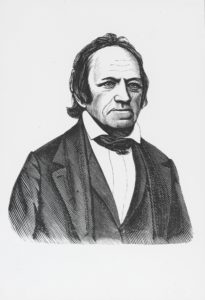
Jacob Jacobsen Dampe (Dr. Dampe) dør i Kbh. (født 10.1.1790 i København).
Som en af forkæmperne mod enevælden tilbragte han årene 1820-1848 i fængsel eller forvist til Christiansø/Bornholm.
Links:
- J.J. Dampe (Wikipedia.dk). Med bibliografi.
- J.J. Dampe (Dansk Biografisk Leksikon, 3. udg.)
- Folkestyrets martyr. Af Georg Metz (Information.dk, 6. november 2008). Anmeldelse af Preben Harris’ bog: En biografisk fortælling om dr. J.J. Dampe (Gyldenal, 2008, 176 sider)
- Guldalderens frihedskæmpere. Af Henrik Nielsen” (Serie: Af arbejderklassens og politiundertrykkelsens historie) (Oktobernet.dk)
Litteratur:
Den første demokrat. Cand Theol. og dr.phil. J.J. Dampe. Af Kenn Tarbesen (side 192-216 -i: Oprørere. Skæbnefortællinger om danmarkshistoriens tolv største rebeller. red.: Morten Petersen. Aschehoug, 2006, 368 sider).




















